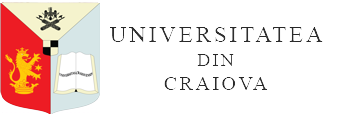Youth in Action
Youth in Action is the EU program that supports non-formal learning activities for young people, through project funding. It is the continuation of the program Youth and was implemented during 2007 – 2013. The program, funded by the European Commission, aimed at promoting active citizenship among young people, developing feelings of solidarity and tolerance, supporting mutual understanding between youngsters from different countries, promoting European cooperation and improving the quality of support systems for youth work.
Eligible applicants
NGOs established under Ordinance no. 26/2000 on associations and foundations;
• Public institutions directly involved in youth work (except Action 1.2 – Youth Initiatives);
• Special schools for disabled young people (except Action 1.2 – Youth Initiatives);
• Informal youth groups:
- For all actions except Action 1.2 – National Youth Initiatives, the informal groups of young people can apply only if they are represented (including contracts) by any of the categories of organizations mentioned above;
- For action 1.2 - National Youth Initiatives, informal groups of young people (without being represented by one of the categories of organizations mentioned above) may apply directly only on condition that it becomes an NGO by the end of the project (in this case the maximum that can be approved for costs not exceeding 3000 Euro activities that can add costs related to the trainer and/or additional dissemination and exploitation of results);
- Only for the European Voluntary Service – can run structures dealing with events in youth, sport or culture, whether the structure is coordinating.
IMPORTANT! To run for the European Voluntary Service it is necessary to obtain prior accreditation.
ATENTIE! Pre-university and university educational establishments and school inspectorates or teacher training institutes are not eligible.
YiA Structure
The Programme Youth in Action has five operational Actions. Decentralized sub-actions managed by the National Agencies are:
Sub-Action 1.1 – Youth Exchanges
Youth Exchanges offer groups of young people from different countries the opportunity to meet and learn about each other’s cultures, in clearly established activities. The groups plan together their Youth Exchange around a theme of mutual interest.
Sub-Action 1.2 – Youth Initiatives
Youth Initiatives support group projects developed at local, regional, national level and European projects. They aim at exchanging experiences between young people and experiential learning.
Sub-Action 1.3 – Projects for participatory democracy
The projects for participatory democracy support young people’s participation in the democratic life of their local, regional or national community, and also the international level.
Action 2 – European Voluntary Service
The purpose of the European Voluntary Service is to support young people’s participation in various forms of volunteering both within and outside European Union borders. Through this Action, young people take part individually or in groups in non-profit, unpaid groups.
Sub-Action 3.1 – Cooperation with partner countries neighboring the European Union
This sub-action supports projects with partner countries neighboring the European Union, namely Youth Exchanges and Training and Networking Projects in the youth field.
Sub-Action 4.3 – Training and Networking
This sub-action supports the training of those active in youth work and youth organizations, in particular the exchange of experiences, expertise and best practices, as well as activities which may lead to projects, partnerships and sustainable quality networks.
Sub-Action 5.1 – Meetings of young people and those responsible for youth policy
This sub-action supports cooperation, seminars and structured dialogue between young people, those active in youth work and those responsible for youth policy.
Deadlines
All applications are submitted by post to the National Agency for Community Programmes in Education and Vocational Training Field.
Since Year 2012 (available also in 2013) the number of deadlines will be reduced to three, as follows:
|
Deadline |
Date of the start of the project |
|
1 February |
Between 1 May and 31 October |
|
1 May |
Between 1 August and 31 January next year |
|
1 October |
Between 1 January and 30 June next year |






